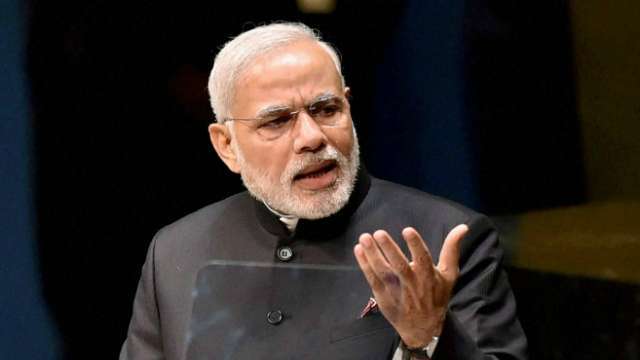NEW DELHI: Prime Minister Narendra Modi’s stocktaking of the economy has been postponed pending finance ministry putting together a comprehensive presentation on the reasons for slowdown and remedial measures it proposes.
Modi was to meet Finance Minister Arun Jaitley, Chief Economic Adviser Arvind Subramanian and other top officials in the finance ministry this evening to analyse the economic situation and explore options to stimulate the economy.
The meeting has been postponed by a few days, official sources said. No new dates have been proposed as yet.
Prime Minister’s Office has asked finance ministry to hold consultations with key ministries to prepare a matrix of government revenues and spending as well as the measures needed to arrest the decline in GDP growth, the sources said.
Sectoral reasons and action points would be prepared, they said, adding that high level discussions with ministries such as railways to assess the capital requirement for the year were held yesterday and more such meeting would follow.
Similar discussions are planned with the road transport and highways ministry to assess spendings on infrastructure projects.
Discussions, attended by Additional Principal Secretary to Prime Minister, P K Mishra, are also happening with commerce and industry ministry on exports.
Two years ago, India was touted as a rare bright spot in a gloomy global economy with GDP growth outpacing a slowing China. But since early 2016, GDP growth has fallen for six consecutive quarters, dipping to three-year low of 5.7 per cent in the April-June quarter with India losing the fastest growing economy tag to China for the second straight quarter.
The sources said the government is keen to address structural problems facing the economy as well as transient issues with implementation of the Goods and Services Tax (GST).
GST was was touted to boost growth by up to 2 percentage point but technical glitches in the first two months of implementation has only created a scare of revenues falling way short of expectations.
Sources said two issues the PMO wants fixed quickly are sluggish exports and private investment not picking up.
Demonetisation of old 500 and 1000 rupee notes, which constituted 86 per cent of the currency in circulation, had impacted cash-dependent informal sectors of the economy and small enterprises.
Sources said targeted government spending given the limited fiscal space available particularly on infrastructure, combined with quickly fixing the problems with GST and focusing on sectors and industries that create jobs are the prime focus.
The government is concerned at the stuttering growth despite a benign macroeconomic environment with easy money flowing in, global growth reviving, government revenues looking solid, deep foreign exchange reserves, reasonable oil prices and a decent monsoon keeping food prices in check.
Besides falling GDP growth rate, exports are facing strong headwinds and the industrial growth is the lowest in five years. The current account deficit (CAD) – the difference between inflow and outflow of foreign exchange, has risen to 2.4 per cent of GDP in April-June.
CEA Arvind Subramanian had last week briefed the Prime Minister on macro-economic situation. (AGENCIES)


